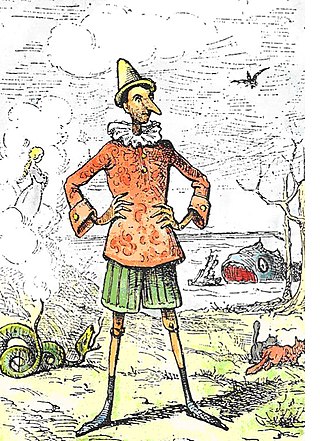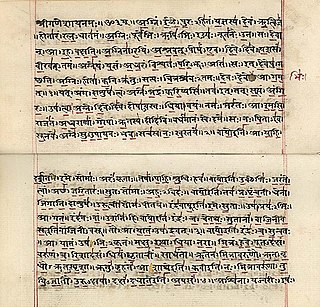In ethics and the social sciences, value theory involves various approaches that examine how, why, and to what degree humans value things and whether the object or subject of valuing is a person, idea, object, or anything else. Within philosophy, it is also known as ethics or axiology.
Integrity is the practice of being honest and showing a consistent and uncompromising adherence to strong moral and ethical principles and values. In ethics, integrity is regarded as the honesty and truthfulness or accuracy of one's actions. Integrity can stand in opposition to hypocrisy, in that judging with the standards of integrity involves regarding internal consistency as a virtue, and suggests that parties holding within themselves apparently conflicting values should account for the discrepancy or alter their beliefs. The word integrity evolved from the Latin adjective integer, meaning whole or complete. In this context, integrity is the inner sense of "wholeness" deriving from qualities such as honesty and consistency of character.
Deception or falsehood is an act or statement that misleads, hides the truth, or promotes a belief, concept, or idea that is not true. It is often done for personal gain or advantage. Deception can involve dissimulation, propaganda and sleight of hand as well as distraction, camouflage or concealment. There is also self-deception, as in bad faith. It can also be called, with varying subjective implications, beguilement, deceit, bluff, mystification, ruse, or subterfuge.

Pascal's wager is a philosophical argument presented by the seventeenth-century French mathematician, philosopher, physicist and theologian Blaise Pascal (1623–1662). It posits that human beings wager with their lives that God either exists or does not.

A lie is an assertion that is believed to be false, typically used with the purpose of deceiving or misleading someone. The practice of communicating lies is called lying. A person who communicates a lie may be termed a liar. Lies can be interpreted as deliberately false statements or misleading statements. Lies may also serve a variety of instrumental, interpersonal, or psychological functions for the individuals who use them.
Self-deception is a process of denying or rationalizing away the relevance, significance, or importance of opposing evidence and logical argument. Self-deception involves convincing oneself of a truth so that one does not reveal any self-knowledge of the deception.

Temperance in its modern use is defined as moderation or voluntary self-restraint. It is typically described in terms of what an individual voluntarily refrains from doing. This includes restraint from revenge by practicing non-violence and forgiveness, restraint from arrogance by practicing humility and modesty, restraint from excesses such as extravagant luxury or splurging, and restraint from rage or craving by practicing calmness and self-control.

Bad faith is a sustained form of deception which consists of entertaining or pretending to entertain one set of feelings while acting as if influenced by another. It is associated with hypocrisy, breach of contract, affectation, and lip service. It may involve intentional deceit of others, or self-deception.

Satya is a Sanskrit word loosely translated as truth, essence. It also refers to a virtue in Indian religions, referring to being truthful in one's thoughts, speech and action. In Yoga, satya is one of five yamas, the virtuous restraint from falsehood and distortion of reality in one's expressions and actions.

Hospitality is the relationship between a guest and a host, wherein the host receives the guest with some amount of goodwill, including the reception and entertainment of guests, visitors, or strangers. Louis, chevalier de Jaucourt describes hospitality in the Encyclopédie as the virtue of a great soul that cares for the whole universe through the ties of humanity. Hospitality is also the way people treat others, that is, the service of welcoming and receiving guests for example in hotels. Hospitality plays a fundamental role to augment or decrease the volume of sales of an organization.
Christian apologetics is a branch of Christian theology that defends Christianity.
Secular ethics is a branch of moral philosophy in which ethics is based solely on human faculties such as logic, empathy, reason or moral intuition, and not derived from belief in supernatural revelation or guidance—the source of ethics in many religions. Secular ethics refers to any ethical system that does not draw on the supernatural, and includes humanism, secularism and freethinking. A classical example of literature on secular ethics is the Kural text, authored by the ancient Indian philosopher Valluvar.
Mental reservation is an ethical theory and a doctrine in moral theology that recognizes the "lie of necessity", and holds that when there is a conflict between justice and veracity, it is justice that should prevail. The doctrine is a special branch of casuistry developed in the late Middle Ages and the Renaissance. While associated with the Jesuits, it did not originate with them. It is a theory debated by moral theologians, but not part of Canon law.

Literary forgery is writing, such as a manuscript or a literary work, which is either deliberately misattributed to a historical or invented author, or is a purported memoir or other presumably nonfictional writing deceptively presented as true when, in fact, it presents untrue or imaginary information or content.
Geneivat da'at or g'neivat daat or genebath da'ath is a concept in Jewish law and ethics that refers to a kind of dishonest misrepresentation or deception. It is applied in a wide spectrum of interpersonal situations, especially in business transactions.
Othello error occurs when a suspicious observer discounts cues of truthfulness. Essentially the Othello error occurs, Paul Ekman states, "when the lie catcher fails to consider that a truthful person who is under stress may appear to be lying," their non-verbal signals expressing their worry at the possibility of being disbelieved. A lie-detector or polygraph may be deceived in the same way by misinterpreting nervous signals from a truthful person. The error is named after William Shakespeare's tragic play Othello; the dynamics between the two main characters, Othello and Desdemona, are a particularly well-known example of the error in practice.
Christian existential apologetics differs from traditional approaches to Christian apologetics by basing arguments for Christian theism on the satisfaction of existential needs rather than on strictly logical or evidential arguments. Christian existential apologetics may also be distinguished from Christian existentialism and from experiential apologetics. The former is a philosophic outlook concerned with the human condition in general; the latter consists of evidential argumentation based on religious experience.
Akrodha literally means "free from anger". It's considered an important virtue in Indian philosophy and Hindu ethics.
In Jewish tradition, lying is generally forbidden but is required in certain exceptional cases, such as to save a life.
Motivation impairment effect (MIE) is a hypothesised behavioral effect relating to the communication of deception. The MIE posits that people who are highly motivated to deceive are less successful in their goal when their speech and mannerisms are observed by the intended audience. This is because their nonverbal cues, such as adaptor gestures, sweating, kinesic behaviors, verbal disfluencies, etc, tend to be more pronounced due to increased stress, cognitive load, and heightened emotional state. There is some disagreement regarding the MIE hypothesis, with a few nonverbal communication scholars arguing that deception should not be examined as separate for senders and receivers, but rather as an integral part of the overall process.







